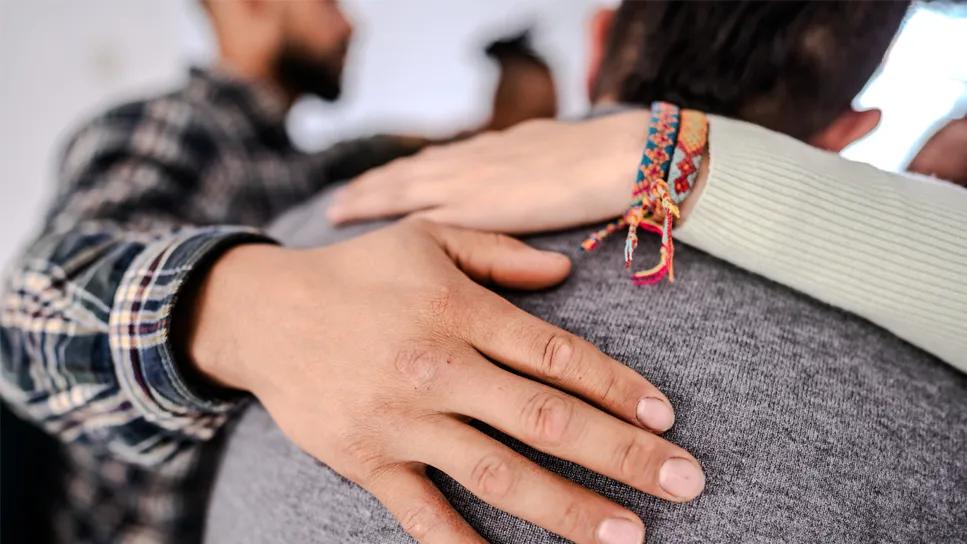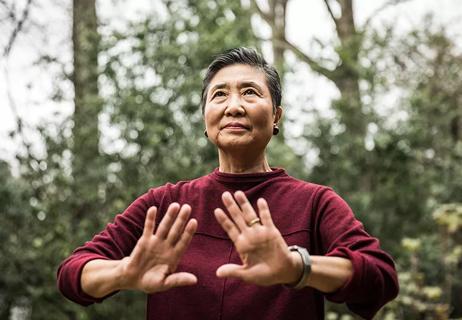Recognizing loss helps you step back into your day

As a child life specialist, Sarah Thompson, CCLS, helps patients and their families positively cope in the hospital. This includes preparing and supporting children and families through medical procedures, providing normalization, nonpharmacological pain management techniques and bereavement support to name a few.
Advertisement
Cleveland Clinic is a non-profit academic medical center. Advertising on our site helps support our mission. We do not endorse non-Cleveland Clinic products or services. Policy
Consult QD sat down with Thompson, who primarily works in the Pediatric Intensive Care Unit, to find out how honoring a patient helps both caregivers and families:
We hear you have been involved with the Pause. Can you tell us about that?
The Pause is an enterprise-wide end-of-life initiative. It’s a short moment of silence caregivers share following a patient’s death. It’s intended to provide a few seconds of support and closure to honor the life of the patient who was just lost and the efforts of the medical team at the bedside who have been working with that patient.
My role on the Pause subcommittee was to provide feedback and help introduce the Pause in the PICU, where the majority of our deaths occur within pediatrics, as well as in other pediatric areas.
Why is this project important to you?
As caregivers, many of us have to work through a patient’s death, and then quickly move onto other patient care needs. I wanted to help find a way to support everyone in some small way, while at the same time honoring what we just endured. I wanted our team to feel supported for our efforts and be given a moment — even if it is only for a few seconds — to grieve what was just lost.
It has made me increasingly aware of the work and feelings of my fellow caregivers. If I am in a room at the time of death, I encourage all to stay and participate, supporting them as well as the family who is there grieving.
It sounds like the Pause would be beneficial for patients’ families, as well.
I have seen some amazing responses from families. One Pause in particular was incredibly impactful. It was for a long-term patient who was treated by caregivers from multiple specialties. At the time of his death, members from all those teams were present — plus family members — as we paused at the time of death to honor him.
Advertisement
We could see the impact on everyone in the room. There was not a dry eye. Everyone needed that moment to recognize the loss before they could step back into their day.
What made you pursue a career as a child life specialist?
I always knew I wanted to work with kids and teach them in some way. I wanted to help kids master coping and other skills that would help them not only during difficult times in the hospital, but also in their lives outside the hospital.
What do you enjoy most about your work?
I love getting to work with patients and families on a personal level and being able to support them through some of life’s most challenging experiences. Not only do I get to support the patients, but I also get to teach parents ways to help their child and support them.
What do you like to do in your free time?
Right now, I work with my husband to repurpose pallets and reclaimed wood into decorative items or furniture. It’s rewarding to see the new creations. I am also involved in my local church family, and being a parent to my 5-year-old son and 2-year-old daughter keeps me very busy.
Share something your co-workers might not know about you.
I have a passion for music. I can play piano and I like to tinker with the guitar. Many Sundays I can be found singing in the praise band at my church.
Advertisement
Advertisement

Pulmonologist-scientist is awarded a $2 million grant from the NIH

Cardiologists offer professionals guidance for better sleep

Reduce stress by adopting mindfulness as a way of life

A Q&A with sports medicine physician Dominic King, DO

Reflections on providing all patient care with the same respect

3 Women's Professional Staff Association members field this question

Benevolence and nonmaleficence in self-disclosure

It's time to take care of YOU